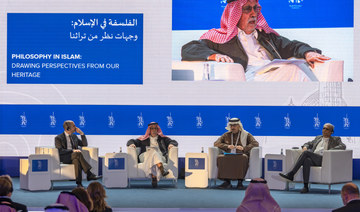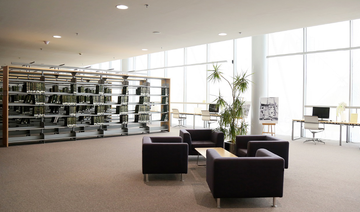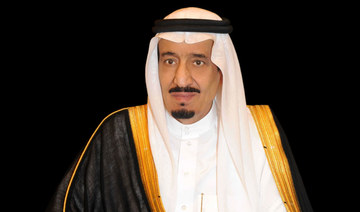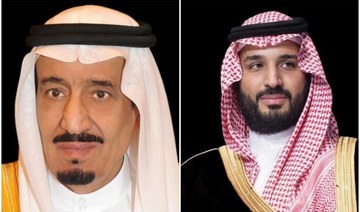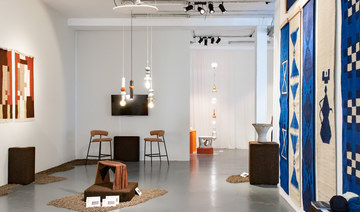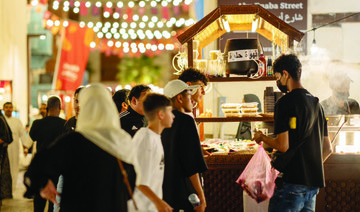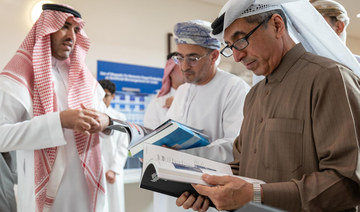RIYADH: An expert speaker at the Riyadh Philosophy Conference believes philosophizing with children is essential to their personal growth as people and as individuals in society, and for adults to perhaps see different perspectives on their set belief systems.
Christopher Phillips, an American author and educator, is a man on a mission: to open up the world to the idea of learning from children. He is known for starting the Socrates Cafe, philosophical discussion meetings held in venues such as cafes, schools, nursing homes and churches. It was also the title of the first in a series of philosophical books he has written, which also includes children’s books “The Philosophers’ Club” and “Ceci Ann’s Day of Why.”
The Kingdom’s first international philosophy conference took place this week at the King Fahad National Library in Riyadh. The three-day event, which began on Dec. 8, is organized by the Ministry of Culture’s Saudi Literature, Publishing and Translation Commission. The attendees included experts in philosophy and its theories and those with an interest in its modern-day applications worldwide.
The event targeted an audience with diverse interests, experiences, and academic and professional backgrounds. The aims of the conference, which is planned to be an annual event, include discussions of the latest developments in philosophy and its contemporary applications
Phillips began his talk at the event by using the well-known example of a proverbial part-filled glass and the question of whether it is half empty or half full.
“Why does it have to be either?” he asked. “Why not both or why not none at all? Or what lies on the surface of the water in the glass: is it air or water?”
Those are some of the answers to the question given to Phillips by children over the years, which he said opened up his mind to a whole new way of looking at things.
Phillips told Arab News that everyone should look at the world through the lens of a child, with an inquisitive curiosity that is open to all possibilities of truth, rather than enter into exchanges and intellectual discussions with rigid presuppositions. He calls this being an “openist,” or “openism.”
According to the opennist philosophy, everything can be challenged but not be in a way that appears hostile. Rather it should open up perceptions of aspects of life to all-new, previously unconsidered avenues of understanding. This is the beauty of dialogue and intertwining different cultural and ideological backgrounds, he says, and a huge part of it is conversing with children philosophically on the “whys” of life.
Phillips, who studied for his bachelor’s degree in the US, has three master’s degrees in natural sciences with a specialty in DNA science, and a doctorate in communications, for which he wrote a thesis on the Socratic method of inquiry.
“I love academia,” he said. “My lament is that we don’t inspire lifelong learners, that we make classes intimidating. We can often tend to suck the desire out of a child to learn more about chemistry and physics and biology, which are the building blocks of so many things.
“People who take an English class instead of being inspired to write their own works are criticized about grammar; it’s all about grammar. When I was a reading teacher in Maine, I used to tell my kids, ‘Don’t worry about the grammar, just get the story out. We’ll worry about the grammar later.’”
Phillips said that when he was working on his first book this was the same approach his editor adopted with him. This made him feel like he had the freedom, creativity and imagination to think and write, he explained, which in turn made his work that much more insightful and meaningful. Writing should not be about the details from the start, he said, it should be about the bigger picture — with the details ironed out later.
“We have all these people teaching us about the most microscopic little things, without giving us a sense of possibility and the big picture,” Phillips said. “So what I do is give workshops in schools to teachers. I teach them to come up with fundamental questions that are timeless in nature, that relate to their discipline, that they feel perplexed about, and can inquire about with kids.
“It’s a very rigorous and difficult exercise, but then it enhances their relationship with their students. The whole idea is to fall in love with the disciplines, to realize there’s no clear-cut boundaries between art and science; that maybe the whole idea is to live a life of poetic science, poetic sensibility.”
Phillips said his methods have been well received and very successful in the schools he has introduced to them. Some teachers have told him their students are now more engaged in learning as they have a better understanding of what it means to learn for themselves. Rather than lessons being forced upon them, it now feels like a moral, personal duty that contributes to their growth as individuals in society.
Teach them the “why”, not the “what”, as Phillips puts it.
“A teacher will kind of say, ‘Chris, what did you do that child? Suddenly, she’s inspired to learn?’ I say, ‘Yeah, because now she sees a reason to develop her reading, writing, arithmetic, because it helps her in her arsenal of introducing philosophical thinking to supply evidence from these various disciplines.’”
In addition to philosophizing with children, Phillips also has discussions with prison inmates and people who are terminally ill.
“I go to prisons: maximum security, minimum security,” he said. “There’s some wise people in there who’ve done some really unwise things. But how many of us can look in the mirror and say, with honesty, that we haven’t ourselves, maybe to a lesser degree.
“The most profound part of my outreach in our nonprofit, SocratesCafe.com, is with terminally ill children and adults. During the pandemic, they have been cut off even more. So many of them, their loved ones died, you know, bereft of family, and yet they have so much wisdom to share.
“And so with whatever time they have left, it’s so important to create a space where they can philosophize and get outside of all the other things that are happening in their lives.”
Phillips started the Socrates Cafe in 1996, and now there are about 500 of the cafes that meet regularly around the world, including eight in Saudi Arabia.
At a Socrates Cafe, people from different backgrounds get together and exchange philosophical perspectives based on their experiences, using a version of the Socratic Method developed by Phillips. Its foundation lies in the idea of proposing Socratic dialogue with anyone who wishes to become a more empathetic, objectively critical and creative philosophical inquirer.
“Socratic inquiry is kindred to the scientific method; it’s no accident I studied the natural sciences,” Phillips explained. “It’s all about positing or hypothesizing a viewpoint, whether it’s ethical or scientific, and then testing it, seeing if it comes up with what you thought it would and if it doesn’t, then you readjust, you revisit, you go out.
“That area of ethical moral inquiry, to me, is completely interlaced with the sciences; it’s about cultivating a social conscience.”




